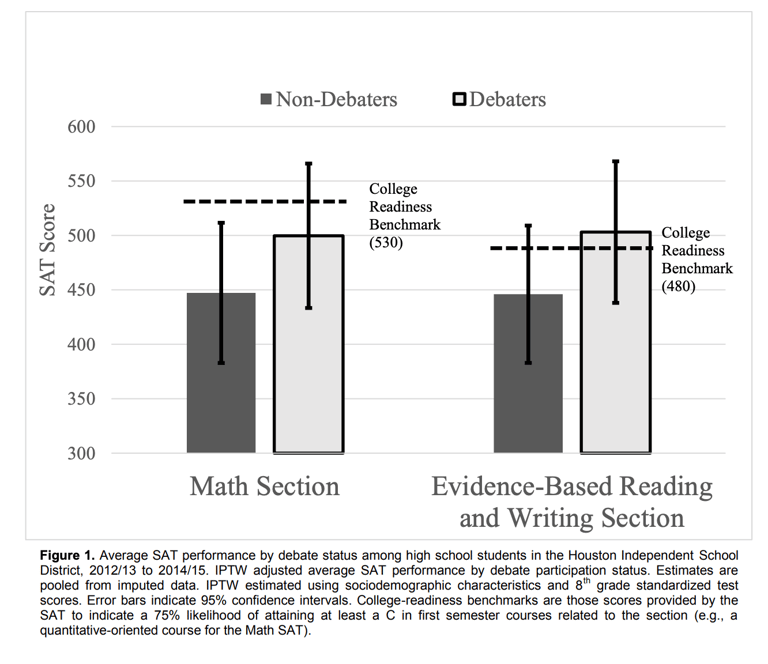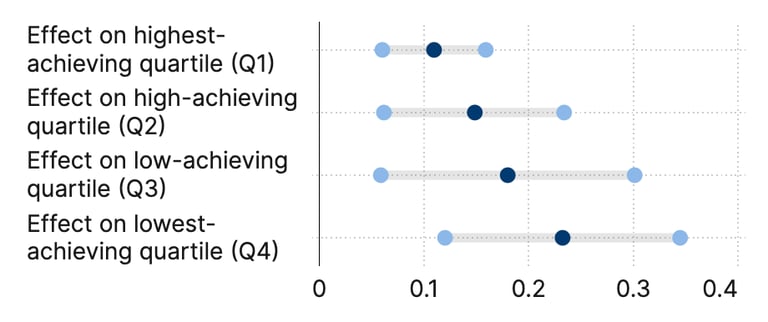Proven Benefits of Debate and Language Skills
Debate isn’t just an extracurricular activity—it’s a proven tool for academic and personal growth. Research shows that debate enhances critical thinking, reading, and writing skills while boosting college readiness and engagement. Students who participate in debate achieve higher test scores, develop essential 21st-century skills, and are more likely to attend college. At a low cost, debate delivers significant educational benefits, making it a must-have in schools.
Raymond Zhang, Cura Learning Founder and Stanford M.S. in Education
5/8/20243 min read
Quantifying the Impact: The Current Study
The latest research reveals debate’s substantial impact on student learning:
Debate improves 9th-grade learning by 68%.
Language skills (grammar and vocabulary) increase by 0.057 standard deviations (SD), while reading comprehension and analysis improve by 0.101 SD.
Participation in debate raises the likelihood of attending college by 12%—a significant effect size of 0.19 SD, compared to the average high school intervention effect of 0.05 SD.
Debate is a cost-effective intervention. At $1,360 per student per year, debate yields double the outcome per dollar compared to MATCH high-dosage tutoring, which costs $4,000 per student.
How Debate-Centered Instruction Works
Research shows that teacher strategies play a crucial role in student achievement:
Math scores improve when teachers allocate more time to individual practice.
English scores improve when teachers focus on discussion and group work.
Highly effective teachers, as rated by their peers, significantly raise test scores (source).
Why Parents Should Advocate for Debate Programs
Given its profound academic and personal benefits, debate should be an integral part of every student’s education. It equips students with the tools to excel in school, prepares them for college, and fosters essential life skills such as confidence, critical thinking, and teamwork. If your child’s school does not offer debate, consider advocating for its inclusion or exploring local debate leagues.
The evidence is clear: debate isn’t just an extracurricular activity—it’s a catalyst for student success.


The Power of Debate: A Game-Changer for Student Success
In today’s education landscape, much of the focus is on building basic skills like reading and writing. However, research suggests that schools often neglect higher-order thinking skills such as critical thinking, analytical reasoning, and argumentation—skills essential for long-term academic success.
A recent study in Boston, particularly focusing on underserved populations, highlights debate as a powerful tool in improving student performance in English Language Arts (ELA) tests. Unlike traditional methods, debate fosters significant improvements in high-order skill areas without causing any decline in math achievement. Additionally, students who participate in debate are more likely to attend college.
The Core Benefits of Debate
in Education
1. Mastering Argumentation and Critical Thinking
At the heart of debate lies the ability to construct and deliver compelling arguments supported by strong reasoning and evidence. These skills align with Common Core Standards, particularly in citing textual evidence to support arguments and analyzing complex texts.
2. Meeting Academic Standards in Reading and Writing
Debate requires students to engage deeply with nonfiction texts, evaluate source credibility, and conduct social science research to support their positions. This practice aligns with state writing standards and is critical for success in high school and college-level coursework.
3. Improved Literacy, Academic Motivation, and Engagement
Research confirms that increasing learning time enhances literacy, math achievement, and social-emotional skills (source). Debate also helps reduce absenteeism, as students take ownership of their learning, engage with current events, and develop expertise in various policy areas.
4. Boosting 21st-Century Skills
Debate naturally cultivates time management, independent decision-making, teamwork, and active listening—skills that are essential for both academic and professional success.
Debate and College Readiness
Several studies underscore debate’s impact on college readiness:
Mezuk (2009) and Anderson & Mezuk (2012) found that debaters were 3.1 times more likely to graduate high school and 70% more likely to meet ACT college readiness benchmarks in reading.
Mezuk et al. (2011) reported that debaters were 19% more likely to graduate and 15% more likely to meet ACT benchmarks in English and reading.
Minneapolis Public Schools (2015) found that debaters outperformed their peers on standardized tests, showing 14% higher growth and 6% higher attendance.
Shackelford (2019) observed positive effects on middle school reading and math scores, along with a 10% decrease in chronic absenteeism.
Ko & Mezuk (2021) found high school debaters had higher GPAs and SAT scores than their matched peers.
Authored by Raymond Zhang founder of Cura Learning, aided by ChatGPT
Cura Learning
Empowering students through innovative learning experiences.
Contact
info@curalearning.org
© 2024. All rights reserved | Privacy | Terms and Conditions




